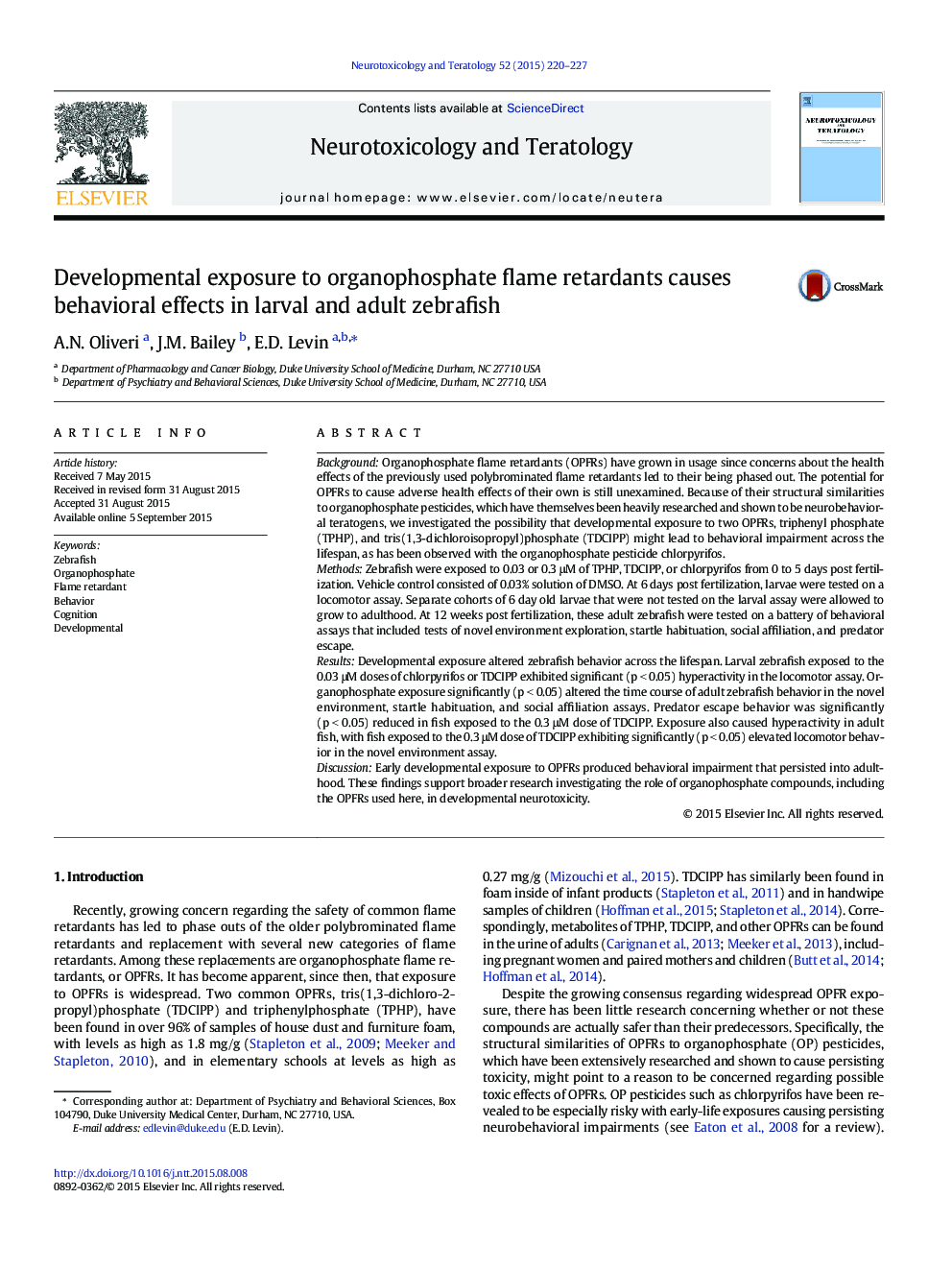| کد مقاله | کد نشریه | سال انتشار | مقاله انگلیسی | نسخه تمام متن |
|---|---|---|---|---|
| 2590823 | 1131782 | 2015 | 8 صفحه PDF | دانلود رایگان |
• Developmental exposure altered zebrafish behavior across the lifespan.
• Early developmental TDCIPP caused persistent locomotor hyperactivity.
• Predator escape behavior was reduced in fish exposed to TDCIPP.
• Early developmental exposure to OPFRs produced behavioral impairment that persisted into adulthood.
BackgroundOrganophosphate flame retardants (OPFRs) have grown in usage since concerns about the health effects of the previously used polybrominated flame retardants led to their being phased out. The potential for OPFRs to cause adverse health effects of their own is still unexamined. Because of their structural similarities to organophosphate pesticides, which have themselves been heavily researched and shown to be neurobehavioral teratogens, we investigated the possibility that developmental exposure to two OPFRs, triphenyl phosphate (TPHP), and tris(1,3-dichloroisopropyl)phosphate (TDCIPP) might lead to behavioral impairment across the lifespan, as has been observed with the organophosphate pesticide chlorpyrifos.MethodsZebrafish were exposed to 0.03 or 0.3 μM of TPHP, TDCIPP, or chlorpyrifos from 0 to 5 days post fertilization. Vehicle control consisted of 0.03% solution of DMSO. At 6 days post fertilization, larvae were tested on a locomotor assay. Separate cohorts of 6 day old larvae that were not tested on the larval assay were allowed to grow to adulthood. At 12 weeks post fertilization, these adult zebrafish were tested on a battery of behavioral assays that included tests of novel environment exploration, startle habituation, social affiliation, and predator escape.ResultsDevelopmental exposure altered zebrafish behavior across the lifespan. Larval zebrafish exposed to the 0.03 μM doses of chlorpyrifos or TDCIPP exhibited significant (p < 0.05) hyperactivity in the locomotor assay. Organophosphate exposure significantly (p < 0.05) altered the time course of adult zebrafish behavior in the novel environment, startle habituation, and social affiliation assays. Predator escape behavior was significantly (p < 0.05) reduced in fish exposed to the 0.3 μM dose of TDCIPP. Exposure also caused hyperactivity in adult fish, with fish exposed to the 0.3 μM dose of TDCIPP exhibiting significantly (p < 0.05) elevated locomotor behavior in the novel environment assay.DiscussionEarly developmental exposure to OPFRs produced behavioral impairment that persisted into adulthood. These findings support broader research investigating the role of organophosphate compounds, including the OPFRs used here, in developmental neurotoxicity.
Journal: Neurotoxicology and Teratology - Volume 52, Part B, November–December 2015, Pages 220–227
